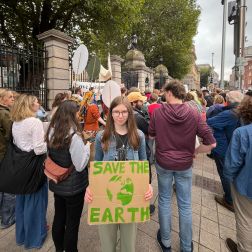- 3 mins read time
- Published: 3rd July 2018
Calinie and Theophile
Like many Burundians living in rural communities in this small landlocked country, life for Calinie and Theophile and their four children until recently was a struggle.  With home a small, poorly-built house with a roof that leaked during the rainy season, sporadic income from crops (beans, peanuts, cassava and maize) meant the family struggled to make ends meet, put enough food on the table and pay regular medical bills. These periods of food insecurity also left their mark on the children, now aged six to 22 years. “We often didn’t have enough food for three meals a day, the kids would sometimes go to school on an empty stomach,” said Theophile.
With home a small, poorly-built house with a roof that leaked during the rainy season, sporadic income from crops (beans, peanuts, cassava and maize) meant the family struggled to make ends meet, put enough food on the table and pay regular medical bills. These periods of food insecurity also left their mark on the children, now aged six to 22 years. “We often didn’t have enough food for three meals a day, the kids would sometimes go to school on an empty stomach,” said Theophile.

But their lives changed two years ago thanks to the Oxfam’s ‘Support to Agricultural Productivity in Burundi’ (PAPAB) project. A key feature of this four-year project, across six provinces and part of Oxfam’s broader Sustainable Food programme, is the innovative Integrated Farm Planning approach (‘Plan Intégré du Paysan’ or PIP) that turns small-scale subsistence farming households into more integrated, productive and sustainable farms. The power of PIP is its ability to change farmers’ mind-sets by motivating them to transform realities through collective action that results in integrated farm planning and resilient farming systems.
“Our yield has increased (50 to 250 kilograms of beans). We sell our surplus. There is now money for school fees, clothes for our children, medicine, we can buy livestock and even hire people to work the land,” said Theophile.

For Calinie and Theophile and 30 other families from their village, like all PIP participants this farmer-to-farmer approach starts with each family producing two drawings that visualize their current farming situation and the family’s desired future. Sandwiched between the drawings is a participatory analysis of potential household interventions and an inventory of skills and assets.
“They told us to go home, draw what we see and then draw how we want our future to look. They taught us as husband and wife, to ensure we understand the project and our objectives,” said Calinie. With a vision of the future committed to paper, Oxfam supports each family to bring it to life.  A series of trainings follows on integrated agricultural techniques (crop production, land management, livestock rearing and income-generation activities) so each family has the knowledge and tools to cultivate a better future. Project team and agronomist house visits ensure technical aspects of interventions are addressed.
A series of trainings follows on integrated agricultural techniques (crop production, land management, livestock rearing and income-generation activities) so each family has the knowledge and tools to cultivate a better future. Project team and agronomist house visits ensure technical aspects of interventions are addressed.
Two years after Oxfam’s PIP approach planted the seed and changed the mind-sets of Calinie and Theophile, they are determined that resilient and sustainable farming systems will continue to blossom in Kanyosha and other rural communes in Burundi.
“Before we were dependent on outside help, now we can produce enough for ourselves. Today, I don’t need an agronomist and next year we will grow more crops,” said Theophile.  This PIP-inspired community empowerment has also translated into collective action with Theophile leading the way in encouraging families to support a village tomato crop with 2,300 plants. “Our idea and vision for the future is to form a cooperative. This is a dream we have,” said Calinie.
This PIP-inspired community empowerment has also translated into collective action with Theophile leading the way in encouraging families to support a village tomato crop with 2,300 plants. “Our idea and vision for the future is to form a cooperative. This is a dream we have,” said Calinie. 




